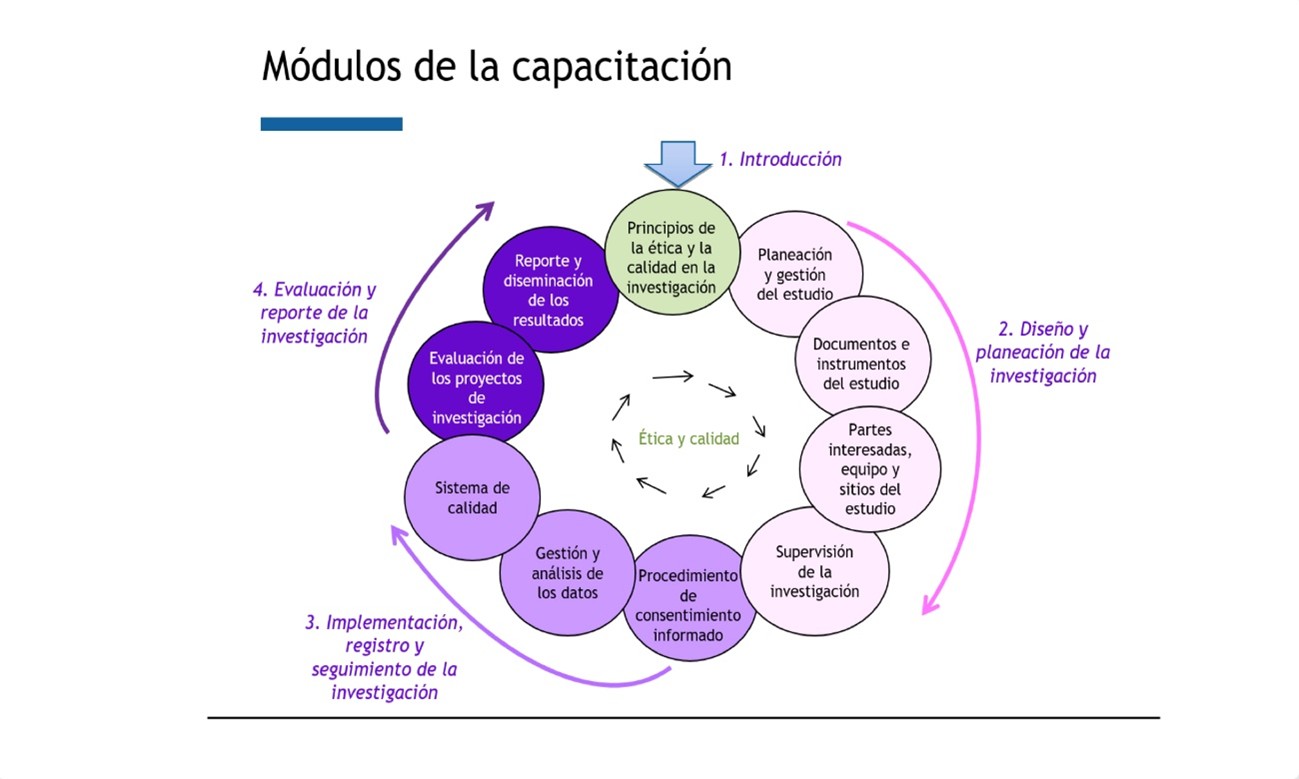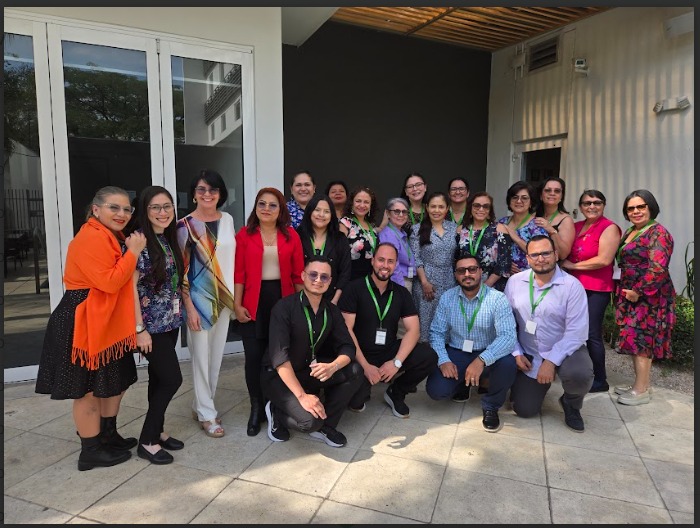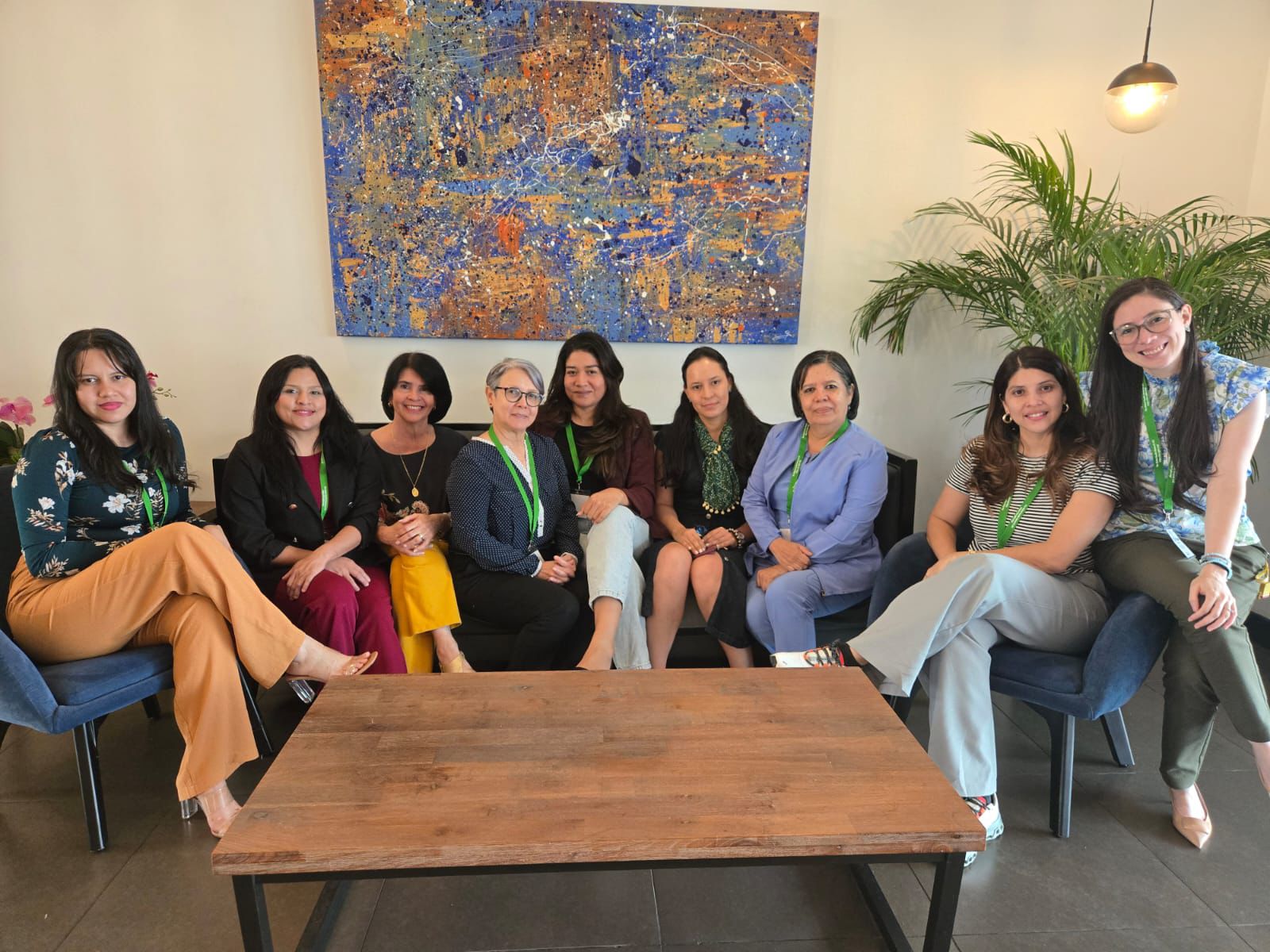Good Research Practices in Health with an Emphasis on Implementation Research (GRP IR) to Foster Research Leadership
Skill-Building (SB) Workshop and Train-the-Trainer (TTT) Workshop
The Good Research Practices in Health (GRP) workshop is one of the trainings offered by CIDEIM (Centro Internacional de Entrenamiento e Investigaciones Médicas), Cali, Colombia, as a regional training center for Latin America and the Caribbean of the Special Programme for Research and Training in Tropical Diseases (TDR), co-sponsored by the United Nations Children’s Fund (UNICEF), the United Nations Development Programme (UNDP), the World Bank, and the World Health Organization (WHO). The Department of Academic Management and Research of the Hospital Escuela and the Antonio Vidal Institute, within the framework of The Global Health Network Latin America and the Caribbean (TGHN LAC) project, continue to join efforts with CIDEIM, as part of their twinning collaboration, to advance GRP training, as was done in 2024, as a strategy to strengthen institutional capacity and foster research leadership at the Hospital Escuela and in partner institutions.
In 2025, the focus was placed on implementation research (IR). The training was carried out as a GRP-IR Skill-Building Workshop from May 19 to 23, and a GRP-IR Train-the-Trainer Workshop from May 26 to 29, 2025. The GRP workshops aim to strengthen capacities to conduct research in human health in compliance with international ethical and scientific quality standards. IR addresses health problems for which effective interventions exist, but implementation is affected by various factors (barriers or facilitators). IR designs, implements, and evaluates implementation strategies to overcome barriers and enhance facilitators that contribute to the efficient implementation of effective interventions.
The workshop, aimed at strengthening individual and institutional capacities, provides participants with the knowledge, skills, and tools necessary for managing and transferring research capacities in human health, especially to: 1) Understand the importance of ethical and quality principles in conducting research in human health, 2) Facilitate the design, execution, registration, and reporting of a research project in accordance with ethical and quality standards, 3) Take responsibility for applying these skills in their daily work. The methodology follows a “step-by-step learning” approach. It is structured in 4 modules that guide participants through progressive learning. Each theoretical session is brief and followed by an extensive case study session. During this practical session, participants work with a real experience (their own project), reflect in small groups, and then share in a plenary session, receive feedback from other participants, and apply this feedback to other participants' projects. In this way, participants learn the concepts and principles and how to apply them. Because the workshop builds step by step, it is essential that all participants attend 100% of the sessions to ensure its success.
Modules of the GRP Workshop
- Introduction to Good Research Practices in Health
- Introduction to Implementation Research
- Module 1: Principles of Ethics and Research Quality
- Module 2: Designing and Planning Research
- Module 3: Conducting, Recording, and Monitoring Research
- Module 4: Evaluating and Reporting Research
GRP-IR Workshop Program

GRP Skill-Building Workshop, Tegucigalpa, Honduras, 32 training hours.
Tegucigalpa, May 19–23, 2025.
Four groups of 4 participants each.

Participants from the Research Ethics Committee (CEIHE), the Department of Transfusion Medicine, the Department of Pediatrics, and the Department of Academic Management and Research of the Hospital Escuela; the School of Nursing, Faculty of Medical Sciences, National Autonomous University of Honduras (UNAH); and the María Pediatric Specialty Hospital; Tegucigalpa, Honduras.
List of participants and facilitators
GRP Train-the-Trainer Workshop, Tegucigalpa, Honduras, 28 training hours.
Tegucigalpa, May 26–29, 2025.

5 participants from the Hospital Escuela, the Faculty of Medical Sciences at UNAH, and the María Pediatric Specialty Hospital.
List of participants and facilitators
Support the community
Thank you for visiting The Global Health Network, please take a moment to read this important message. As you know, our aim is to enable equity in access to research knowledge and this is successfully delivering support and training to 1000’s of research teams all over the world. But we need your support!. If you have benefited from this research skills and knowledge sharing facility, please help us sustain this remarkable and unique provision of information for those who could otherwise not access such support and training. We would be really grateful if you could make a donation or ask your employer or organisation to contribute to the costs of maintaining this platform and the generation of new contents for all users. Just a small contribution from everyone who can afford to pay would keep this available for those who cannot. Thank you, we really appreciate your part in this community effort to better equity in global health research.
